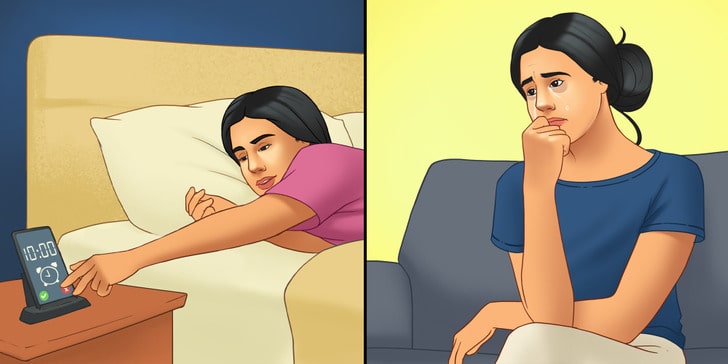Weight loss can be a challenge. And if you’re reading a lot about it online, it can also be confusing. There are many websites and blogs full of health and weight loss advice, and many seem legitimate. While it’s always important to talk to a doctor or nutritionist, sometimes a simple double-check makes these things look in a new light.
We decided to take a look at some common “healthy habits.” And some results were really surprising. Check it out.
Sleeping a bit less to work out in the morning

Training in the morning is considered a great option. It matches the body’s natural hormonal fluctuations, helps with focus and mood throughout the day, and helps regulate appetite.
However, if you commit to the ideal number of hours you should sleep, it can backfire. Sleep restrictions are linked to increased hunger and food intake, with increased risks of weight gain and obesity.
Working out every day
To really make a difference in your life, a regular exercise plan should definitely be as routine to you as eating or sleeping. But you should always reserve a day to rest every 7-10 days.
This is because the body needs to repair microscopic tears in muscle tissue and rebalance lactic acid and glycogen levels. This gives your muscles time to get stronger and reduces the risk of injury.
Working out too much can cause adrenal fatigue and actually increase weight gain, especially around the abdomen. This is due to cortisol, a natural stress hormone that is responsible for regulating metabolism.
Here’s a pro tip: Cortisol is also directly related to stress, so make sure you get plenty of rest, both physically and mentally!
Sleeping too much

We may be more used to hearing the opposite, but this is also true. Just as sleeping too little is bad for you, sleeping too much also increases your risk of developing chronic diseases like coronary heart disease, diabetes, anxiety, and obesity in adults.
If you feel that getting 7 to 8 hours of sleep a night is “not enough” or if you feel tired after a good night’s sleep, consider seeing your doctor.
Not eating enough fats
This is in reference to healthy fats, of course. Fats get a bad rap, but they are part of a healthy, balanced diet, and our bodies need them.
They help absorb vitamins, support cell growth, brain and eye health, healing, and hormone production, just to name a few. And they are the best source of energy for our body.
If you feel sluggish, often hungry, have joint pain, or are colder than usual, you may want to eat more healthy fats.
This can be found in cheese and eggs, olive butter or canola oil, nuts and avocados, and chia or flax seeds. Just try to avoid trans fats from hydrogenated oils often found in processed foods.
Having a zero-tolerance policy with sugar
From lowering your risk of diabetes and aging more slowly to better sleep and weight loss, the benefits of cutting back on sugar are immense.
However, a zero tolerance for sugar can lead to artificial sweeteners being added to foods, and these products can be just as bad as sugar itself, causing diabetes and obesity.
Sugar can be part of a balanced diet, just choose whole fruits instead of juice or cookies. That way, you’ll also be consuming the natural fibers that help your body make the most of them.
Do you exercise regularly? Long stairs and “dog runners” included! And do you love yogurt? What type? Tell us in the comments!


